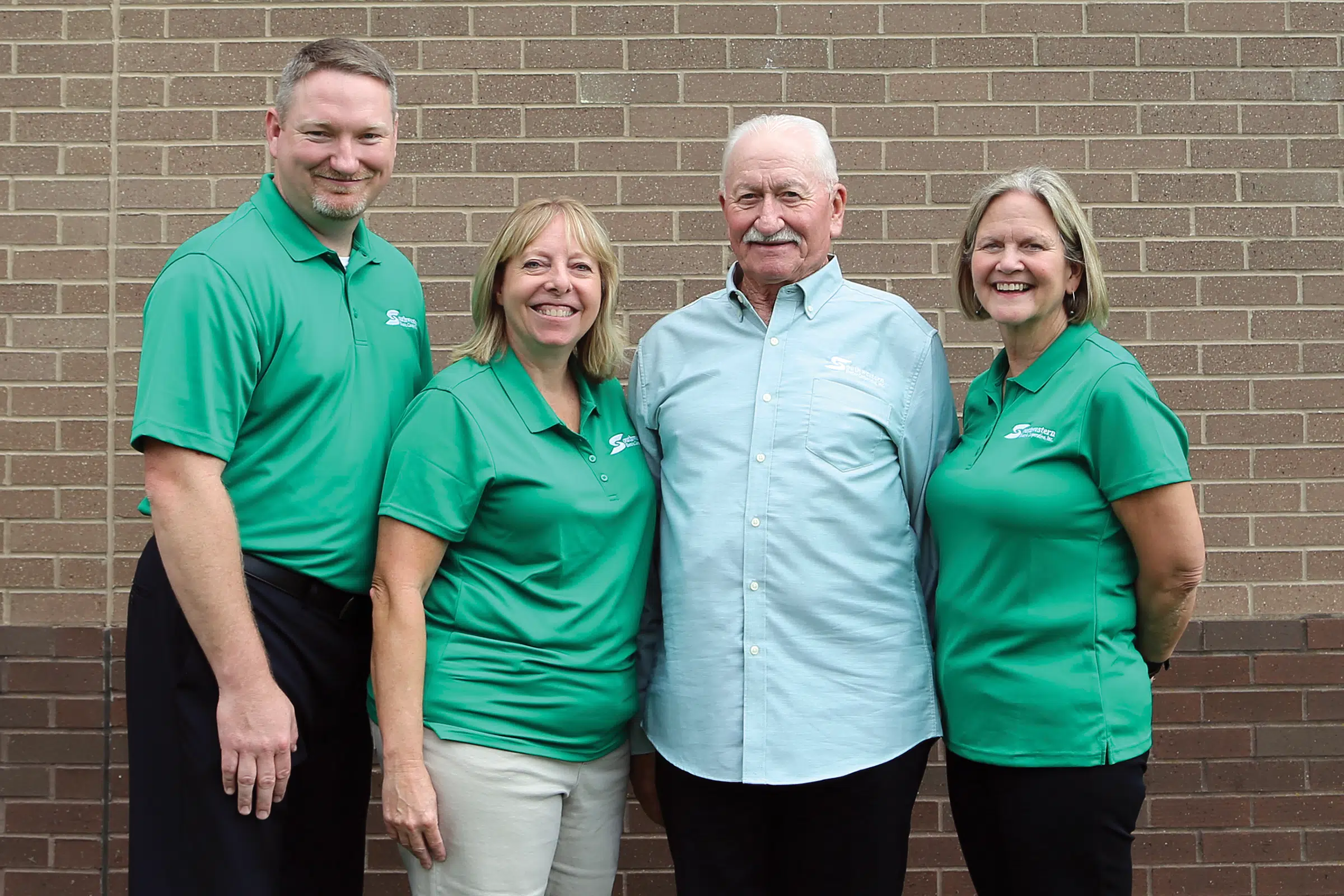 Greenville, IL-(Effingham Radio)- Power supply and demand served as the keynote topic during Southwestern Electric Cooperative’s 84th Annual Meeting of Members, held Saturday, Sept. 10 at Highland Middle School in Highland, Ill. The meeting featured live line electrical safety demonstrations, an electric vehicle and plug-in hybrid car show, a solar energy and geothermal technology fair, and the co-op’s business meeting and election of directors.
Greenville, IL-(Effingham Radio)- Power supply and demand served as the keynote topic during Southwestern Electric Cooperative’s 84th Annual Meeting of Members, held Saturday, Sept. 10 at Highland Middle School in Highland, Ill. The meeting featured live line electrical safety demonstrations, an electric vehicle and plug-in hybrid car show, a solar energy and geothermal technology fair, and the co-op’s business meeting and election of directors.
“If you’ve been watching the news, you’ve seen reports of power supply issues in California,” said Southwestern CEO Bobby Williams. “You may have heard about the possibility of preventative or prescribed power outages — they’re usually called rolling blackouts — in the Midwest. Here’s the long and short of the situation as I see it: Our industry is evolving. We’re shifting from coal-fired power plants to green energy. Older coal plants are closing and energy companies aren’t investing in new plants to take their place.”
Historically, coal provided Illinois with baseload or “always-on” energy, Williams said. “Consequently, the availability of always-on energy in our region is diminishing. Green energy is growing in the Midwest, but it takes a lot of wind and solar to bridge the gap left by baseload energy losses, and wind and solar generation aren’t always on.
“It is possible the Midcontinent Independent System Operator (MISO), which manages power supply and demand across the grid in our region of the Midwest, may require utilities — ours included — to interrupt service for a defined period in specific areas, if, on a particularly hot afternoon or bitterly cold day, the demand for power promises to surpass supply,” Williams said. “By instructing utilities to interrupt power in defined areas for short periods, MISO can reduce demand on the grid and prevent larger outages. The prescribed outage would likely be brief — a few hours — but it would probably occur when demand for energy is greatest — in late afternoon or early evening.”
Williams recommended members treat the potential for a preventative power outage as they would any other outage. “Have a backup power plan in place,” he said. “That can be as simple as arranging to stay with a friend or family member served by another circuit in a different area. Or if you prefer the peace of mind that comes with knowing you’ll have power regardless, you may choose to invest in a backup generator. Think of your backup power plan as insurance: It offers reassurance.”
Williams said he felt the phrase “rolling blackout” was misleading. “It makes a prescribed outage sound like a tidal wave. It isn’t. It’s a controlled operation where transmission line operations and engineering personnel open circuits, and create a defined outage, to reduce power demand for a while. Then they close the circuits to restore power. Unfortunately,” Williams said, “distribution co-ops are often given little or no advance notice of these interruptions — which makes it difficult to notify you.”
He told members that if MISO announced a prescribed outage the cooperative would notify members through its social media channels and automated calls.
“Some of you have asked what you can do to help prevent a rolling blackout. There are two steps you can take,” Williams said. “If MISO issues an energy conservation alert for our region, we’ll pass it along to you. Using appliances like washers, dryers, dishwashers and pool pumps during off-peak hours — at night or early in the morning — may help our area avoid a preventative power outage.
“You can also contact your state and local legislators. Express your concerns. Let your representatives know this issue has your attention. That’s the best way I know to ensure that your voice is heard in Springfield — and Chicago,” he said. “My purpose for mentioning the potential for these prescribed or preventative outages is not to alarm, but rather, inform. As your accountable energy partner, we are monitoring this issue and all others that would impact our service to you, our member-owners.
“Green energy has a place in our future, but we should not sacrifice reliability and our way of life by relying exclusively on technology that is not ready to replace baseload generation. We will continue to do our part to stay ahead of these issues, and you can help by contacting your state and local legislators,” said Williams. “Together we will ensure your cooperative, our cooperative, is here for another 84 years.”
Co-op President Ann Schwarm told members the COVID pandemic served as a catalyst for change within the organization, encouraging the co-op to adopt new technology and approaches to service. “This annual meeting is a bridge between a time of tradition and an era of innovation,” she said. “Every day, while we’re addressing electric cooperative issues and responsibilities — energy, infrastructure, staffing, improving our aging distribution system, securing the resources we need to offer exceptional service and reliability — we are also looking to the future.”
Schwarm said that as part of its strategic plan, Southwestern continues to monitor, analyze and forecast system growth. “As I have pointed out in the past, while our membership continues to grow, our sales of electricity remain stagnant. Crossing the bridge to the future, we cannot always do what we always did.” Schwarm said the cooperative was placing a renewed emphasis on economic development to attract commercial and industrial accounts to the cooperative’s service area. “Improvements and additions to this 84-year-old electrical system will be necessary now and in the years ahead. Setting priorities is paramount. Only projects which are well thought out, timely and economically responsible will get the green light.
“Southwestern Electric Cooperative — my co-op, your co-op — has the leadership and talent to meet any challenge the future may bring,” said Schwarm. “We will continue to use the latest tools and technology, and embrace new and innovative ideas. We will do so in a manner that will serve you well today, tomorrow and in the years to come. That’s a tradition of which we can be proud.”
Following the president’s address, members received election results. In total, 2,087 Southwestern Electric members voted in the election, with 1,953 members using the early voting option offered by the co-op since 2020 and 134 members voting the morning of the meeting. Southwestern members elected one member from each of the cooperative’s three voting districts to serve on the co-op’s board of directors.
From District I, incumbent Sandy Grapperhaus of Collinsville ran unopposed and was elected by acclamation.
From District II, incumbent Ted Willman of Greenville defeated challengers Bruce Unterbrink of Greenville and Stacey Sidwell of Sorento. Willman received 918 votes, Unterbrink received 604 votes and 456 votes were cast for Sidwell.
From District III, incumbent Ann Schwarm of Loogootee defeated challenger Stacy Alwardt of Edgewood. Schwarm received 1,363 votes while 586 members voted for Alwardt.
Each director will serve a three-year term on the board.
Based in Greenville, Ill., Southwestern Electric Cooperative is a not-for-profit, member-owned utility serving 24,000 residential, commercial, agricultural and industrial members in 11 counties along the I-70 corridor between St. Louis, Mo., and Effingham, Ill.









Comments